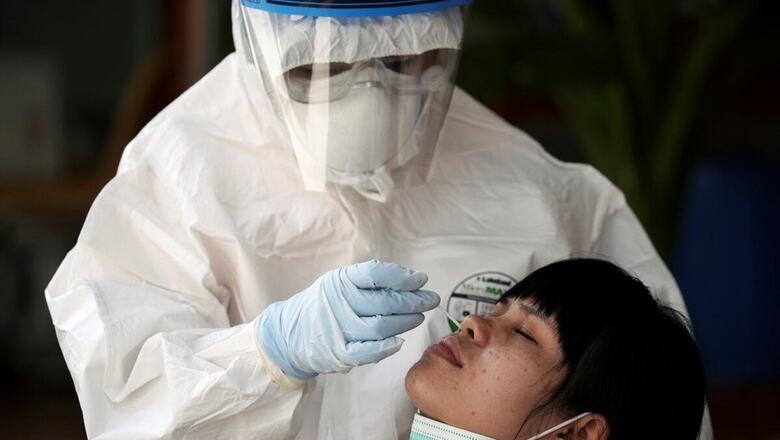
views
An official UK study released on Thursday concludes that a past COVID-19 infection provides some immunity for at least five months, but people may still carry and transmit coronavirus. The Public Health England (PHE) analysis found that naturally acquired immunity as a result of past infections provide 83 per cent protection against reinfection, compared to people who have not had the disease before.
This appears to last at least for five months from first becoming sick. However, experts cautioned those with immunity may still be able carry the virus in their nose and throat and, therefore, have a risk of transmitting to others. "This study has given us the clearest picture to date of the nature of antibody protection against COVID-19 but it is critical people do not misunderstand these early findings," said Professor Susan Hopkins, Senior Medical Advisor at Public Health England who led PHE's SIREN study.
"We now know that most of those who have had the virus, and developed antibodies, are protected from reinfection, but this is not total and we do not yet know how long protection lasts. Crucially, we believe people may still be able to pass the virus on, she said. She stressed that the findings mean even if you believe you already had the disease and are protected, you can be reassured it is highly unlikely you will develop severe infections but there is still a risk that you could acquire an infection and transmit to others.
Now more than ever it is vital we all stay at home to protect our health service and save lives, she added. The PHE says it has been regularly testing tens of thousands of health care workers across the UK since June for new COVID-19 infections as well as the presence of antibodies, which suggest people have been infected before.
While the SARS-CoV-2 Immunity and Reinfection EvaluatioN (SIREN) study will continue to assess whether protection may last for longer, its results warn that people who contracted the disease in the first wave may now be vulnerable to catching it again. Between June 18 and November 24, scientists detected 44 potential reinfections (two probable' and 42 possible' reinfections) out of 6,614 participants who had tested positive for antibodies. This represents an 83 per cent rate of protection from reinfection.
The PHE also warned that although those with antibodies have some protection from becoming ill with COVID-19 themselves, early evidence from the next stage of the study suggests that some of these individuals carry high levels of virus and could continue to transmit the virus to others. It is therefore crucial that everyone continues to follow the rules and stays at home, even if they have previously had COVID-19, to prevent spreading the virus to others. Remember to wash hands regularly, wear face coverings and make space from others to help reduce the likelihood of passing on the virus, the experts note.
The analysis took place prior to the widespread dissemination of the new highly-transmissible variant VOC202012/01 and the PHE said that further work was underway in the laboratory to understand whether and to what extent antibodies also provide protection from this variant. The study will continue to follow participants for 12 months to explore how long any immunity may last, the effectiveness of vaccines and to what extent people with immunity are able to carry and transmit the virus.
The experts stressed that this first report provides no evidence towards the antibody or other immune responses from COVID-19 vaccines, nor should any conclusions to be drawn on their effectiveness.
Read all the Latest News, Breaking News and Coronavirus News here




















Comments
0 comment